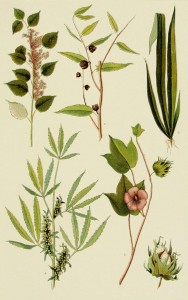by Shawn Hauser, Vicente Sederberg
As we learn more about the cannabis plant and its potential uses and benefits, Cannabidiol, or “CBD,” continues to emerge as one of the most beneficial, and non-intoxicating, parts of the plant. Although there is significant research on the safety and efficacy of CBD, and some forms of CBD derived from hemp are arguably not regulated under the federal Controlled Substances Act (CSA), the Drug Enforcement Administration still considers CBD a marijuana derivative and Schedule I drug that is being illegally marketed in violation of the CSA and the Federal Food, Drug, and Cosmetic Act (FDCA).
In addition to food and drugs, nutrients and other supplements are regulated by the Food and Drug Administration (FDA) under the FDCA. The purpose of the FDCA is to forbid “the movement in interstate commerce of adulterated and misbranded food, drugs, devices, and cosmetics.” Disregarding the legality of CBD product sales under the CSA, any company contemplating the sale of such products should consider whether the products can be lawfully sold under the FDCA. Any product intended for use in the diagnosis, cure, mitigation, treatment, or prevention of disease is classified by the FDA as a drug, regardless of the product’s form or how it is marketed or labeled. Drug approval requires an extensive process involving collecting and submitting for review clinical and non-clinical data about the proposed use of the drug. While FDA has not yet attempted to regulate marijuana products sold in licensed marijuana establishments, the proliferation of states legalizing CBD for medical purposes and legalizing the cultivation and sale of hemp products has complicated the legal landscape. As CBD products move out of marijuana establishments and into retail and internet stores, they are catching the FDA’s eye.
In February 2015, the FDA sent letters to companies marketing CBD products stating that the companies were violating the FDCA by making therapeutic claims about the products, which are not approved as “drugs” under the FDCA. The FDA also recently confirmed that CBD cannot be marketed as a dietary supplement, stating that “Based on available evidence, FDA has concluded that cannabidiol products are excluded from the dietary supplement definition under section 201(ff)(3)(B)(ii) of the FD&C Act. Under that provision, if a substance has been authorized for investigation as a new drug for which substantial clinical investigations have been instituted and the existence of such investigations has been made public, then products containing that substance are outside the definition of a dietary supplement. There is an exception if the substance was ‘marketed as’ a dietary supplement or as a conventional food before the new drug investigations were authorized; however, based on available evidence, FDA has concluded that this is not the case for cannabidiol.”
In marketing products, the FDA classifies products based on intended use. Any website selling the product or providing references to sites where the product is sold will likely be examined for content by the FDA in determining the product’s intended use. Evidence of intended use includes claims on labels and literature, the citation of publications related to the product, and claims made on any forum where a consumer may see the product. Products may be considered “drugs” if claims are made related to the product’s use for the cure, mitigation, treatment, or prevention of diseases. Evidence of such claims may include therapeutic claims, claims that the product possesses certain medical properties, or the commercial use of scientific publications to promote the product’s sale. Even simple references to scientific studies or general research, such as “cannabinoids are emerging as an effective treatment for infections,” may be considered evidence that the product is a drug.

To further complicate matters, CBD has been granted orphan drug status by the FDA for treatment of Dravet’s Syndrome and Lennox-Gastaut Syndrome. However, the FDA has acknowledged the mixed signals sent by the present controlled substance classification of cannabis, and of CBD specifically, and has publicly supported research regarding CBD’s potential medical uses in testimony before the House Subcommittee on Government Operations.
Prior to marketing CBD products, companies should consult with an attorney who specializes in FDA compliance. This due diligence can not only ensure compliance and prevent action by the FDA, but may also promote the business’s reputation as one that is professional, thorough, and trustworthy. The FDA is less likely to target medical marijuana companies that a) avoid engaging in interstate commerce and only sell products within states that have legalized medical marijuana, and b) do not make claims about the proven efficacy of CBD products. As cannabis and CBD products proliferate, recent FDA activity indicates that the FDA is monitoring retailers and manufacturers of these products and will continue to do so going forward.
Nothing herein is intended to create an attorney client relationship. This article is for educational purposes only and shall not be considered legal advice. Please consult the appropriate legal professional prior to relying on anything mentioned herein.
Shawn Hauser, Esq., is the senior associate at Vicente Sederberg, Sustaining Members of NCIA. Shawn has been working in marijuana and law in policy for almost 7 years, starting with internships in marijuana law while she was studying at the University of Denver Sturm College of Law, where she chaired the school’s chapter of NORML. Prior to joining Vicente Sederberg LLC, Shawn worked at a small law firm specializing in marijuana law, criminal defense and family law. Shawn is the director of the “Local Implementation Project” for the non-profit Sensible Colorado Action, where she works with local governments across the state to pass marijuana laws that foster responsible businesses. Shawn also serves on the board of National Hemp Association, a Denver-based organization dedicated to the re-birth of industrial hemp in America. Shawn came to Denver in 2008 from Austin, Texas, where she fostered her love for live music, while studying psychology at the University of Texas at Austin.

Follow NCIA
Newsletter
Facebook
Twitter
LinkedIn
Instagram
–